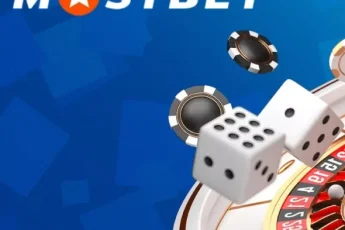- Introduction
- Understanding Garnishment
- How Does Garnishment Work?
- Can Casino Winnings Be Garnished?
- When Can Casino Winnings be Garnished?
- Legal Implications of Garnishing Casino Winnings
- Exemptions and Limitations
- How to Handle Garnishment of Casino Winnings
- Dealing with Garnishment: Steps to Take
- Conclusion
Introduction
Many gamblers dream of hitting the jackpot at the casino, imagining the exhilarating moment when they finally win big. However, one question that often arises is whether these winnings can be garnished or not? In this article, we will shed light on this issue, discussing the circumstances under which casino winnings can be garnished, the legal implications, and how to manage this situation.
Understanding Garnishment
Before we delve into the specifics of casino winnings and garnishment, let’s first understand what garnishment means. In legal terms, garnishment is a court order directing that money or property of a third party (usually wages paid by an employer) be seized to satisfy a debt owed by a debtor to a plaintiff creditor. In other words, if you owe money, your creditors can get a court order to take it directly from your income or assets.
How Does Garnishment Work?
In a typical garnishment scenario, the creditor sues the debtor. If the creditor wins the case, they get a judgment against the debtor. The judgment allows the creditor to start the garnishment process, where the debtor’s employer, bank, or even the lottery commission is ordered to reserve a portion of the debtor’s money to pay the debt.
Can Casino Winnings Be Garnished?
Yes, casino winnings can indeed be garnished. This means if you hit the jackpot at a casino, and you owe money to a creditor who has won a judgment against you, they can potentially garnish your casino winnings. The specific laws and procedures regarding this vary from state to state, so it’s crucial to understand the laws in your particular jurisdiction.
When Can Casino Winnings be Garnished?
Casino winnings can be garnished under several circumstances:
1. Outstanding Child Support: If you have a backlogged child support payment, your casino winnings can be garnished. The Child Support Division can intercept gambling winnings for paying child support arrears.
2. Unpaid Taxes: If you owe unpaid taxes, both the Internal Revenue Service (IRS) and your state’s Department of Revenue can garnish your casino winnings.
3. Outstanding Student Loans: If you have defaulted on federal student loans, the Department of Education might step in to garnish your casino winnings.
4. Other Judgments: If a creditor has a judgment against you for an unpaid debt, they can potentially garnish your casino winnings.
Legal Implications of Garnishing Casino Winnings
The process of garnishing casino winnings is bound by certain laws and regulations. Once a creditor obtains a judgment, they must usually get a separate garnishment order from the court before proceeding. This order will indicate how much money can be taken and when.
Exemptions and Limitations
While creditors have the right to garnish casino winnings, debtors also have certain protections under the law. For instance, federal law places limits on wage garnishment amounts. It generally restricts it to either 25% of the debtor’s disposable earnings or the amount by which a debtor’s weekly income exceeds 30 times the federal minimum wage, whichever is less.
Certain types of income, like Social Security benefits, are exempt from garnishment. However, these exemptions do not typically extend to casino winnings.
How to Handle Garnishment of Casino Winnings
If you’re facing the garnishment of your casino winnings, it’s advisable to seek legal counsel. An attorney can help you understand your rights and may be able to help you negotiate with your creditors.
Dealing with Garnishment: Steps to Take
1. Understand the Garnishment Process: Educate yourself about the garnishment process in your state. Laws vary, and understanding them can help you navigate the situation.
2. Seek Legal Advice: If your casino winnings are substantial, consider consulting with an attorney. They can guide you through the process and may be able to help you protect some of your winnings.
3. Pay Off Debts: If possible, consider paying off your debts to avoid garnishment. This step may not be feasible for everyone, but if you can manage it, it can help you avoid a lot of hassle.
4. Negotiate with Creditors: If you can’t pay off your debts in full, try negotiating with your creditors. They may be willing to settle for a lesser amount or agree to a payment plan.
Conclusion
While winning big at the casino can be a thrilling experience, it’s essential to remember that your winnings can be garnished if you have unpaid debts. Understanding your rights and the garnishment process can help you navigate this situation and potentially protect some of your winnings. If you find yourself in this situation, consider seeking legal advice to ensure you’re making the best decisions about your financial future.







